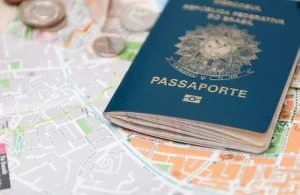Chile, Argentina, and Brazil stand out in Latin America for having the strongest passports, as per Henley & Partners’ annual global passport ranking.
This ranking, a measure of global mobility, determines a passport’s strength by its visa-free access worldwide.
Chile’s passport, ranking 43rd globally, leads in Latin America by offering visa-free entry to 177 countries.
Argentina’s passport comes next, ranking 44th with access to 174 destinations, while Brazil’s follows at 45th, providing entry to 173 countries.
These passports are deemed powerful due to their extensive visa-free travel capabilities compared to other passports in the region.

The Henley & Partners ranking evaluates 199 passports globally, considering the number of destinations each can access without a visa.
This visa-free score is a crucial indicator of a passport’s global mobility. Developed with the International Air Transport Association (IATA), the index has been a vital tool in analyzing global visa regulations since 2006.
Globally, the top passports offering access to 194 countries are from France, Germany, Italy, Japan, Singapore, and Spain.
Finland, South Korea, and Sweden closely follow, each allowing entry to 193 countries without a visa.
Latin American rankings: Mexico (52nd, 161 destinations), Uruguay (57th, 156 destinations), and Costa Rica (60th, 152 destinations).
Countries like Ecuador (100th, 95 destinations), Bolivia (113th, 82 destinations), and Cuba (141st, 64 destinations) are lower in the ranking.
However, this global ranking illustrates the disparities in international travel freedom and opportunities based on the nationality of a passport.
A passport’s strength shapes travel, economics, tourism, business, and diplomacy, influencing holders’ experiences and global engagements.
In short, the ranking not only sheds light on global mobility but also on the geopolitical and economic relationships between countries.

